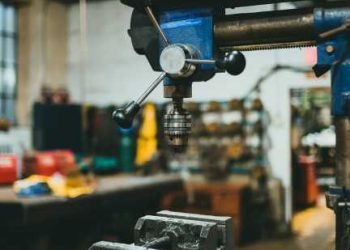Artificial Intelligence (AI) is making profound changes in manufacturing, impacting everything from supply chain management to the assembly line. Manufacturers can use AI to automate repetitive, mundane and often dangerous tasks. AI can also help manufacturers create new services and products, streamline production, and improve their bottom line. The following article discusses the impact of artificial intelligence in manufacturing.
AI-enabled predictive maintenance
One of the most significant ways AI is impacting manufacturing is through predictive maintenance. Predictive maintenance relies on sensors that collect data throughout the production process. The AI algorithms analyze this data, identifying patterns and predicting when equipment is likely to fail. This enables manufacturers to schedule maintenance proactively, reducing downtime and ensuring equipment runs at maximum efficiency.
Improved Quality Control
AI can be used to automate quality control, allowing manufacturers to identify defects throughout the production process. This can be done through a combination of sensors, cameras, and algorithms. Because AI can analyze data more quickly and accurately than humans, it has the potential to greatly improve quality control in manufacturing.
Optimizing Supply Chain Management
AI can help manufacturers optimize their supply chain through predictive analytics. By anticipating demand, suppliers can optimize their inventory and reduce waste. Additionally, AI can reduce the risk to supply chains through real-time monitoring and analysis of suppliers.
Assisting with Assembly Line Tasks
Another way AI is helping manufacturers is by assisting with assembly line tasks. For example, vision systems can help workers correctly identify parts, ensuring components are assembled correctly. Additionally, AI-powered robots are becoming more common in manufacturing, taking over tasks that are repetitive or dangerous.
Improved Efficiency
AI has the potential to greatly improve efficiency in manufacturing. By analyzing data throughout the production process, manufacturers can identify areas where they can improve throughput, reduce waste, and improve quality control. Additionally, AI can be used to optimize energy usage and reduce overall manufacturing costs.
New Products and Services
AI is also enabling manufacturers to create new products and services. By analyzing customer data, manufacturers can identify new products that will be in high demand. Additionally, AI can be used to create personalized and customized products using mass production techniques.
Conclusion
The impact of AI in manufacturing is significant and far-reaching. From predictive maintenance to improved quality control, AI is helping manufacturers reduce costs, improve efficiency, and create new products and services. As AI continues to evolve, it will become an integral part of the manufacturing process, enabling manufacturers to be more agile, responsive, and competitive.












